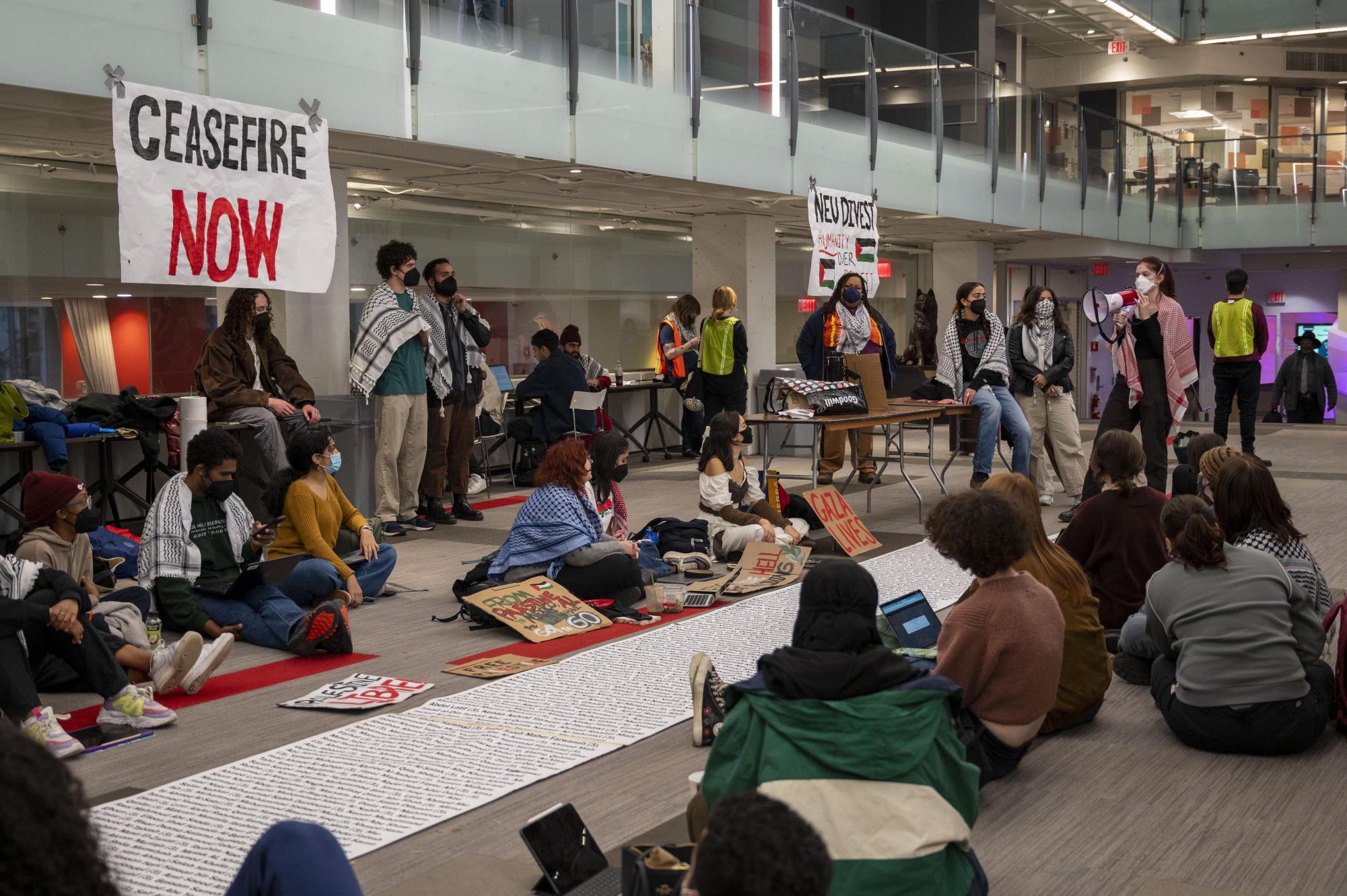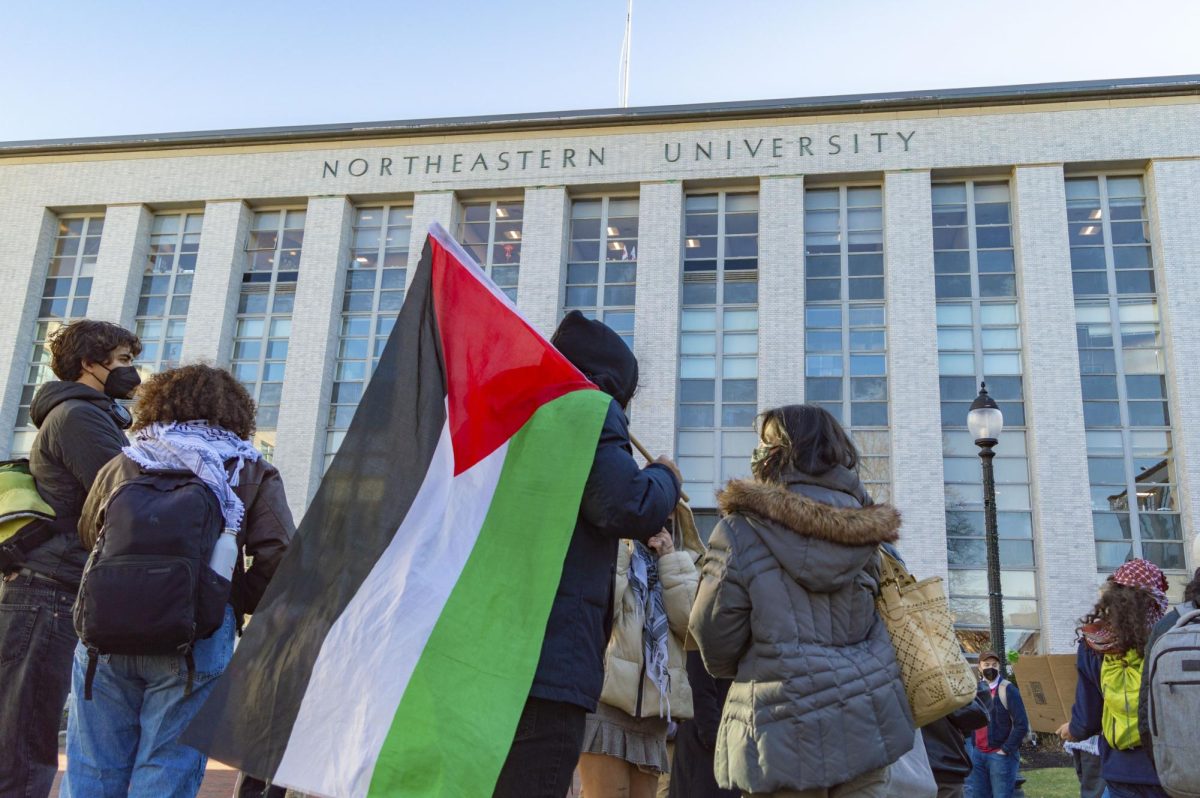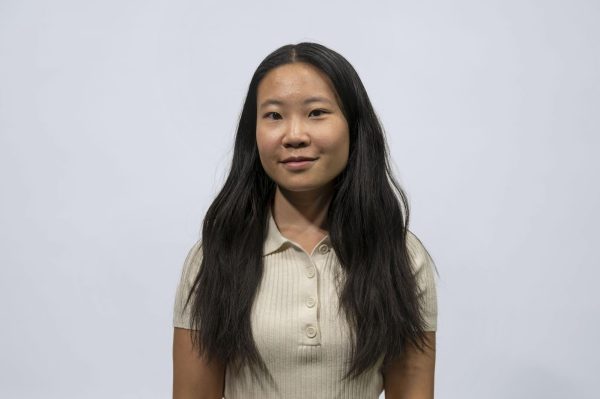A group of more than a dozen students and alumni filed a complaint against Northeastern with the U.S. Department of Education’s Office for Civil Rights Aug. 12, urging a federal investigation into the university’s handling of alleged discrimination against Palestinian and Palestine-supporting students before and after the October 2023 outbreak of the Israel-Hamas war.
Fourteen people — six current students, one inactive student and seven graduates — filed the complaint by email with the Department of Education on behalf of two student organizations formally recognized by the university: Northeastern University Students for Justice in Palestine, or NUSJP, and Northeastern University School of Law Students for Justice in Palestine, or NUSLSJP.
The complaint specifically accuses the university of violating its obligations under Title VI of the Civil Rights Act of 1964, which prohibits discrimination on the basis of race, color or national origin under federally-funded programs, including universities.
“In keeping with longstanding policy, the university does not comment on pending legal matters,” said Renata Nyul, Northeastern’s vice president for communications, in an email statement to The News. “Our Code of Student Conduct is enforced equally and without regard to political viewpoints. We will continue this approach in the coming academic year.”
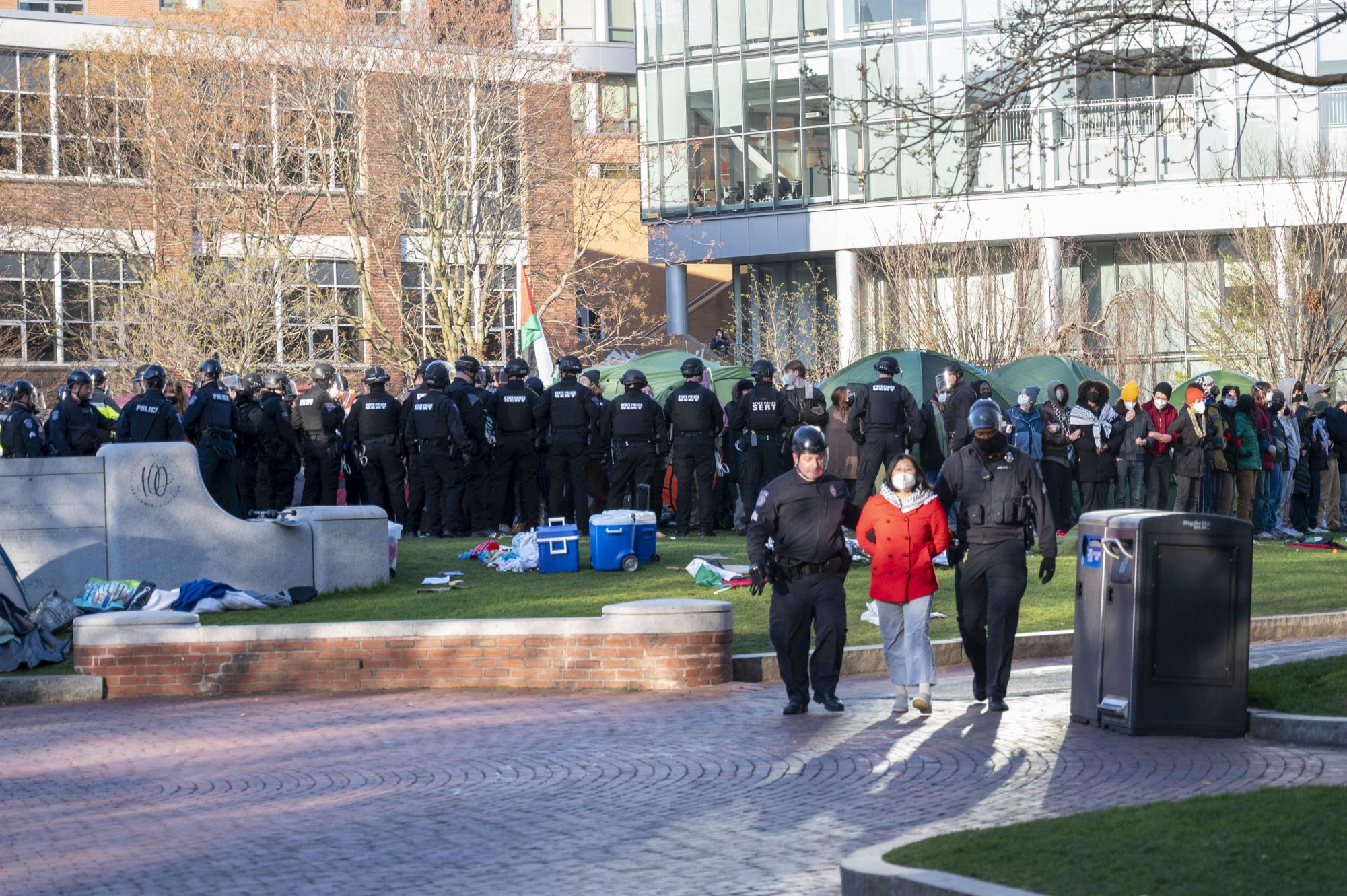
The move is the latest major display of pro-Palestinian pushback at Northeastern and follows the university’s mass arrest of protesters at an April encampment and an academic year largely defined by turmoil over the Israel-Hamas war.
The complaint outlines three allegations, arguing the university created a hostile environment for Palestinian and Arab students, imposed unfair disciplinary action over pro-Palestinian activism and responded to pro-Palestine events more harshly than pro-Israel events.
The first allegation notes several instances of students filing complaints regarding threats, discriminatory language and social media harassment with Northeastern’s Office of University Equity and Inclusion, or OUEC. The complaint claims that OUEC looked into, but closed the cases on the grounds of free speech protections or limited office jurisdiction over the matters. The dismissals of these cases, the complainants say, show that Northeastern failed to denounce anti-Palestinian rhetoric on campus, leaving Palestinian and Arab students feeling unsafe.
One of the complaints filed with OUEC came from a NUSJP-affiliated student, who felt “threatened” at a Dec. 6 Huskies for Israel event after a guest speaker made “targeted” statements. The complaint alleges the speaker said “people who support Palestine should be deported or arrested in this country.” It cites an email notification from OUEC closing the case, reasoning that it was outside the office’s jurisdiction.
Another OUEC complaint was filed by the student who authored the majority of the Title VI complaint: Mariam Hassan, a second-year law student with leadership roles in both NUSJP and NUSLSJP. Hassan, who is Arab and Muslim, alleged that she may have been graded unfairly by a “vocally Zionist professor” due to her identity and her role in on-campus organizing for Palestine. She said her OUEC case is ongoing, but her grade appeal was dismissed.
The complaint also recalls one OUEC case filed before the start of the war — an “extensive report” alleging a first-year law student had harassed multiple Palestinian and Arab students and faculty members throughout the 2020-21 academic year. The complaint says the School of Law responded by supporting the accused student and turning down remedies proposed in the report.
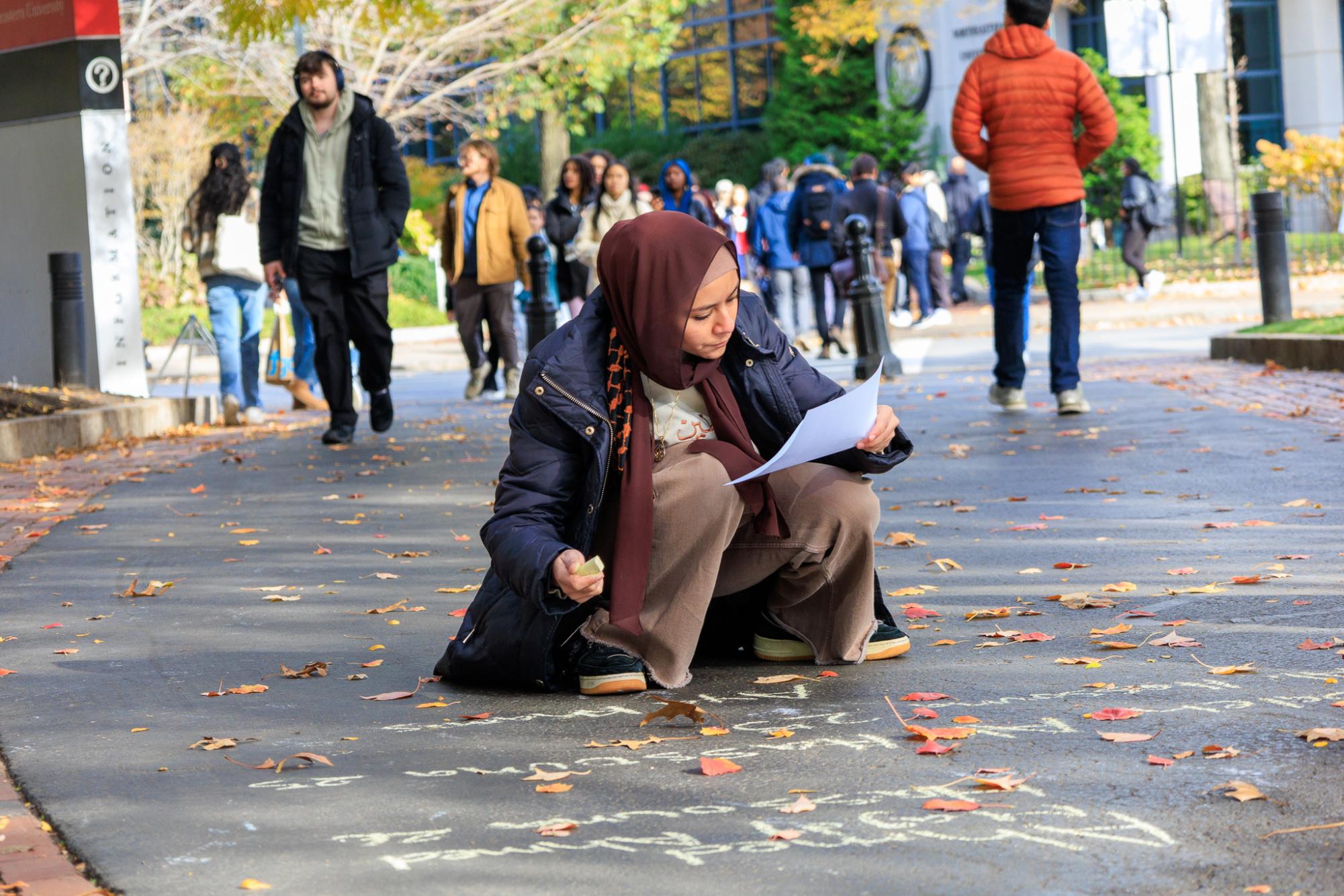
The second allegation condemns the university’s use of law enforcement and disciplinary action in regulating pro-Palestinian demonstrations.
The complaint specifically highlights the heavy Northeastern, Boston and state police presence maintained on Centennial Common throughout the near 48-hour pro-Palestine encampment in late April. The complaint accuses some administrators, including Vice Chancellor and Dean of Students Chong Kim-Wong, of verbally intimidating protesters, and some Northeastern University Police Department, or NUPD, officers of using excessive physical force. Ninety-eight protesters were arrested and several students were placed on deferred suspension as a result of the demonstration, The News previously reported.
A December sit-in was also closely monitored by NUPD and ultimately led to three students being placed on deferred suspension. An April flyering incident during the university’s Holocaust and Genocide Awareness Week prompted a NUPD investigation. According to the complaint, disciplinary charges against involved students ensued.
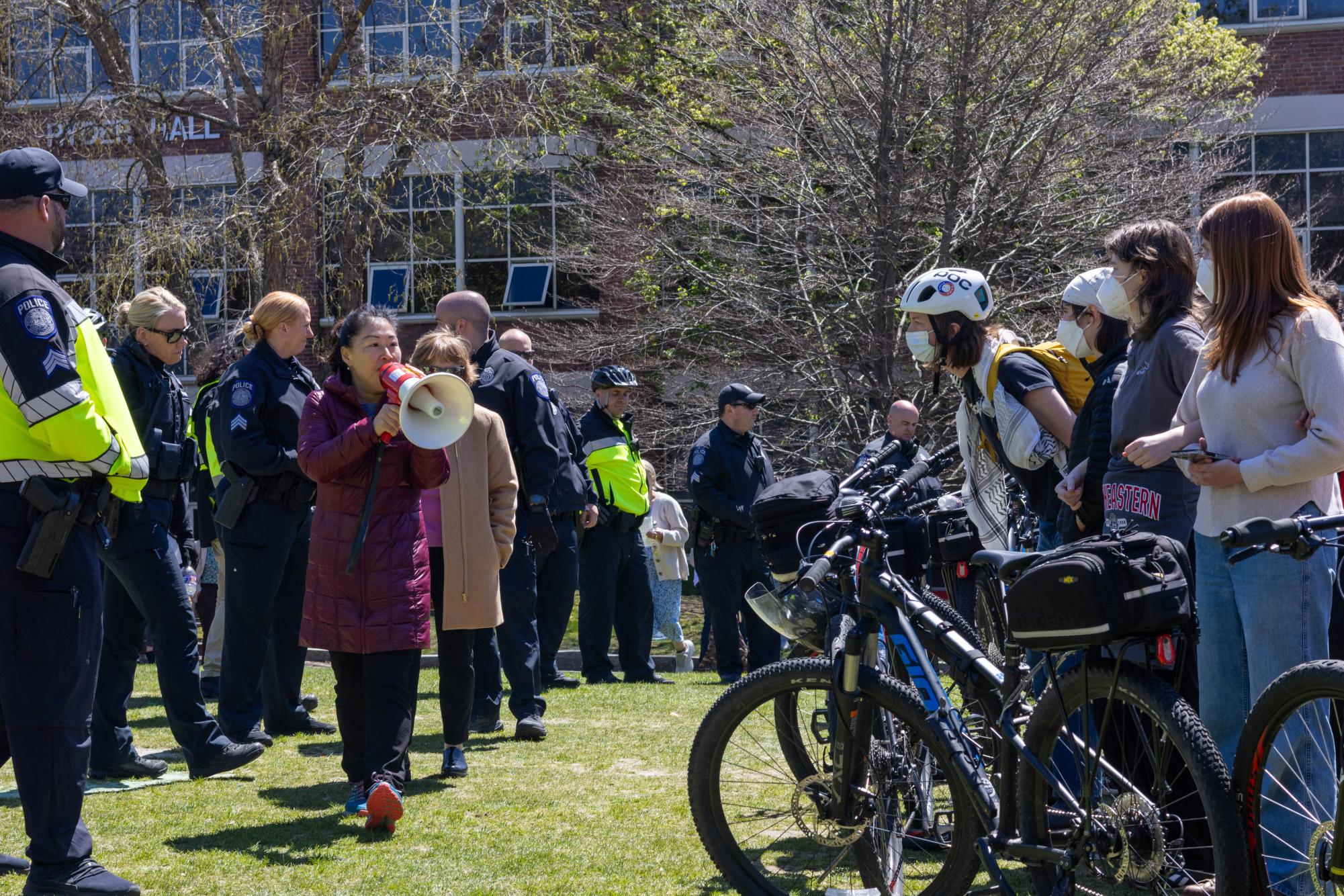
The third allegation accuses Northeastern of applying a double standard when responding to pro-Palestinian versus pro-Israeli student organizations and events.
The complaint points to NUSJP and NUSLSJP events — including a November chalk-in and a February art installation — where students were allegedly told by administrators that they were allowed to post flyers and letters with pro-Palestinian messaging on bulletin boards. The complainants say these items were removed by administrators, but pro-Israel posters around campus were not.
The complainants also allege that the university has imposed stricter regulations on pro-Palestine events based on concerns from Israeli students, whereas concerns they’ve expressed about pro-Israel events have not resulted in any disciplinary actions or repercussions.
The Department of Education’s Office for Civil Rights, or OCR, will review the complaint to determine whether or not the allegations “constitute further processing.” OCR can choose to dismiss the complaint or open an investigation and collect further evidence. The complainants and the university have the option to negotiate an agreement during the review process or during an investigation.
The complaint lays out six steps for Northeastern to take to redress the alleged impacts on affected students, including clearing the records of students who received disciplinary charges due to demonstration activity, denouncing Israel’s attacks in Gaza, issuing a public statement apologizing for its “failure to offer services and help to Palestinians impacted by violence as it has other students” and holding mandatory staff trainings on anti-Palestinian discrimination.
The complaint closes with a call for Northeastern to amend its Title VI investigatory standards to better respond to future concerns of hostility on campus.
Northeastern students are not the first to request a federal investigation into alleged discrimination on their college campus since the outbreak of the Israel-Hamas war; OCR has launched probes into dozens of universities, investigating cases of both anti-Palestinian discrimination and antisemitism.
In June, OCR found the University of Michigan and the City University of New York liable for violating Title VI, ruling that both universities failed to protect against anti-Palestinian discrimination and antisemitism on their campuses. The cases were the first of those filed after Oct. 7 to reach resolutions.
Palestine Legal, an organization defending pro-Palestinian advocates in the U.S., has filed at least nine Title VI complaints since April, leading to investigations into universities including Columbia University, the University of Massachusetts Amherst and the University of North Carolina at Chapel Hill. At Columbia and UMass Amherst, investigations opened within one to two weeks of the complaint being filed.
In July, the Department of Education terminated an investigation into antisemitism allegations at Harvard University after a federal lawsuit was filed on the same allegations.
Hassan told The News the group of Northeastern complainants consulted with Palestine Legal after the encampment about how to structure the case against the university but wrote the complaint independently.
“I think we are the best storytellers when it comes to what happened, because we are the people that experienced it,” Hassan said.
She called Northeastern’s handling of the encampment “the last straw,” but noted that pro-Palestinian student organizers had been logging experiences of harrassment since Oct. 7 in anticipation of pursuing legal action.
The News confirmed in June that throughout several months of campus protests, administrators and pro-Palestinian students have not met to discuss demands or negotiate. The Title VI complaint, Hassan said, is their most promising step thus far toward pressuring the university into action.
“Even if they don’t open an investigation, for the first real time, we’re telling our own story and we’re going public with it. I think in itself that is a huge victory,” Hassan said.
